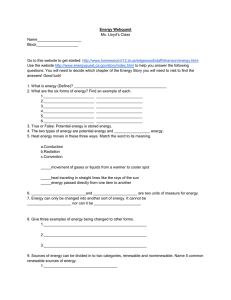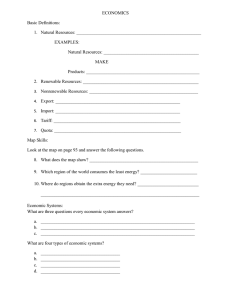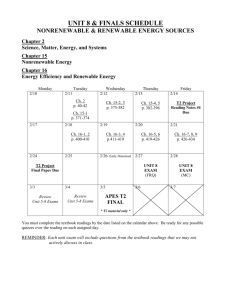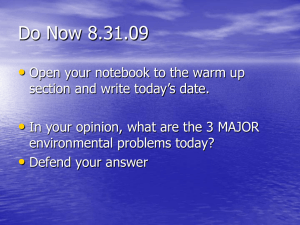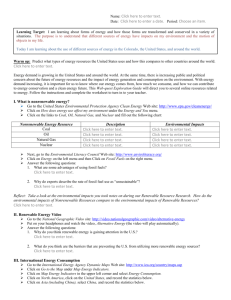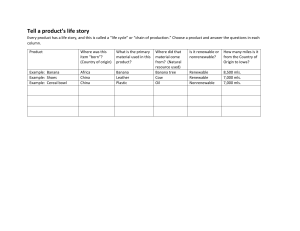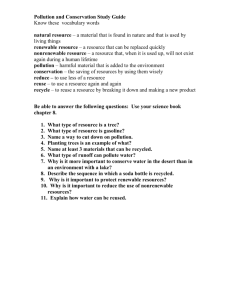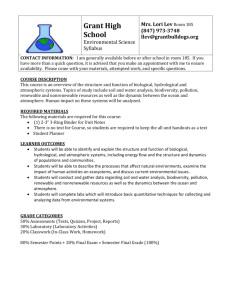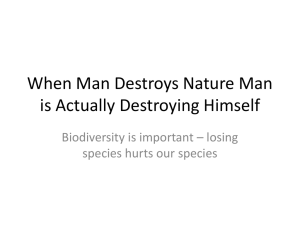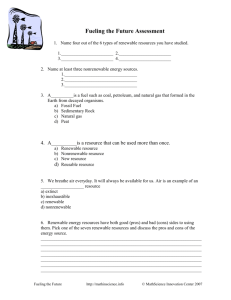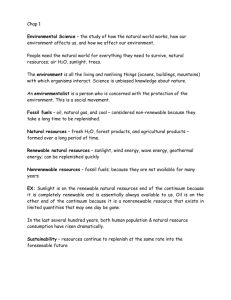Environmental Science Worksheet: Our Island, Earth
advertisement
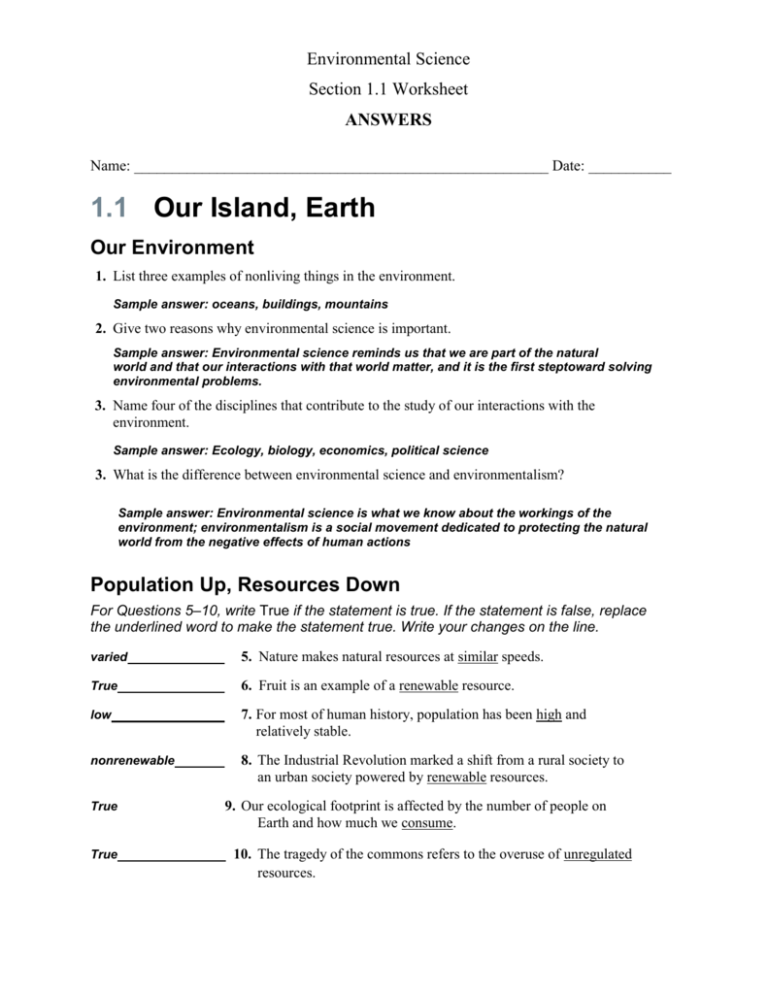
Environmental Science Section 1.1 Worksheet ANSWERS Name: _______________________________________________________ Date: ___________ 1.1 Our Island, Earth Our Environment 1. List three examples of nonliving things in the environment. Sample answer: oceans, buildings, mountains 2. Give two reasons why environmental science is important. Sample answer: Environmental science reminds us that we are part of the natural world and that our interactions with that world matter, and it is the first steptoward solving environmental problems. 3. Name four of the disciplines that contribute to the study of our interactions with the environment. Sample answer: Ecology, biology, economics, political science 3. What is the difference between environmental science and environmentalism? Sample answer: Environmental science is what we know about the workings of the environment; environmentalism is a social movement dedicated to protecting the natural world from the negative effects of human actions Population Up, Resources Down For Questions 5–10, write True if the statement is true. If the statement is false, replace the underlined word to make the statement true. Write your changes on the line. varied 5. Nature makes natural resources at similar speeds. True 6. Fruit is an example of a renewable resource. low 7. For most of human history, population has been high and relatively stable. nonrenewable 8. The Industrial Revolution marked a shift from a rural society to an urban society powered by renewable resources. True True 9. Our ecological footprint is affected by the number of people on Earth and how much we consume. 10. The tragedy of the commons refers to the overuse of unregulated resources. Answer the following questions in complete sentences in the space provided. 11. In what way is living on Earth similar to living on an island? In both situations, the natural resources that people need to survive are limited. 12. Why are sunlight and oil on opposite sides of the renewability continuum? Sunlight is on the renewable natural resources end of the continuum because it is completely renewable and is essentially always available to us. Oil is on the other end of the continuum because it is a nonrenewable resource that exists in limited quantities that may one day be gone. 13. What could cause a renewable natural resource to become a nonrenewable resource? If a renewable natural resource is not used at a sustainable rate, it could become a nonrenewable resource. 14. How can a nonliving thing have an ecological footprint? Sample answer: Even an object, whether natural or synthetic, uses up natural resources when it is formed or manufactured and when it is disposed of or recycled. 15. What is one way the tragedy of the commons could be avoided? Sample answer: People who share a common resource can organize, cooperate, and enforce responsible use of the resource. Use the graph below to answer Questions 16 and 17. 16. Which event shown on the graph signaled the biggest change in human population growth? Industrial Revolution 17. Explain how understanding environmental science can help people solve problems related to human population growth. Sample answer: Because environmental science describes complex interactions between people and the environment, it can help us understand the effects increased human population will have on resources in the environment.
